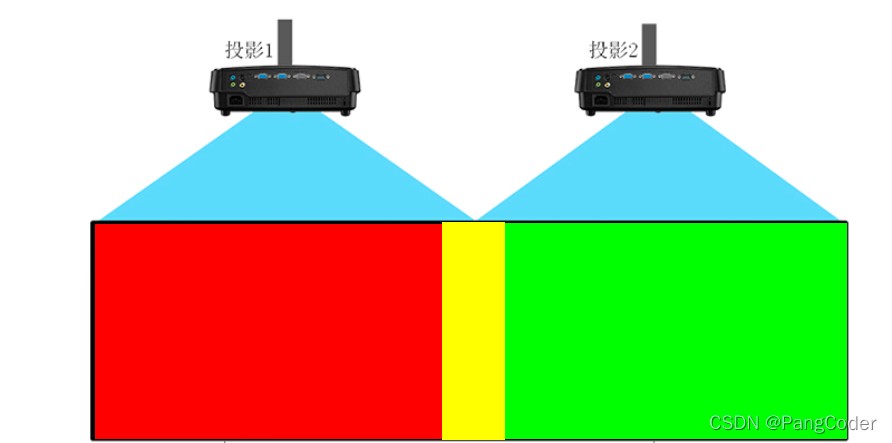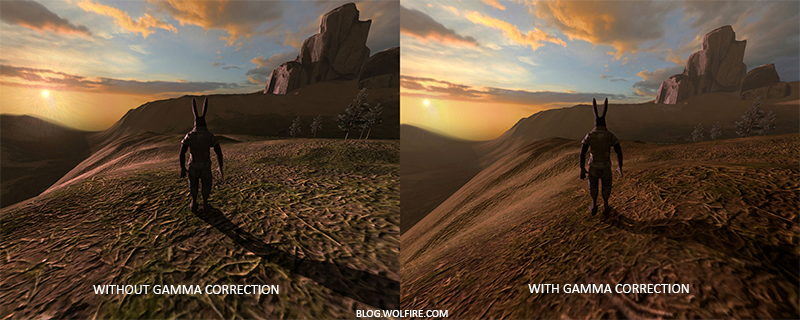Introductions » History » Revision 13
« Previous |
Revision 13/15
(diff)
| Next »
Winson MIKE , 01/16/2024 06:23 PM
Introductions¶
Before we dive into details about our project, we need to introduce you on the topics that we focus in this project, to give a better insight.¶
Project details¶
The aim of this project is to create a large, singular image on a flat screen using two projectors, each from angles. The requirement of
implementing this method was also that we need to use a planar screen, 2 PC laptops, and a projector optical axis that is perpendicular
to the screen. In order to further enhance the quality of the image, alpha blending and gamma correction methods were used in the development
process to be applied in the overlapping projection area.
- Hence, Firstly, The screen size (Red/Green and Yellow), specified as 'L' would be 1280mm and the length of the projector would be specified as 'd' (Red or Green).
Then we need to obtain the condition where d < L and followed by the property of proportion,
we have the overlapped area X that can be obtained by L - d = X. The equation d / L = x / 1280 can also be formulated.

2. Alpha Blending
Alpha blending, also known as alpha compositing, is a method that is used for combining separate layers of images
into a composite of partial or full transparency

3. Gamma Correction
Gamma correction or gamma is a nonlinear operation used to encode and decode luminance or tristimulus values in video or still image systems.
Gamma correction is, in the simplest cases, defined by the following power-law expression:

Here is an example of how the image should be if gamma correction is applied:

Updated by Winson MIKE almost 2 years ago · 13 revisions